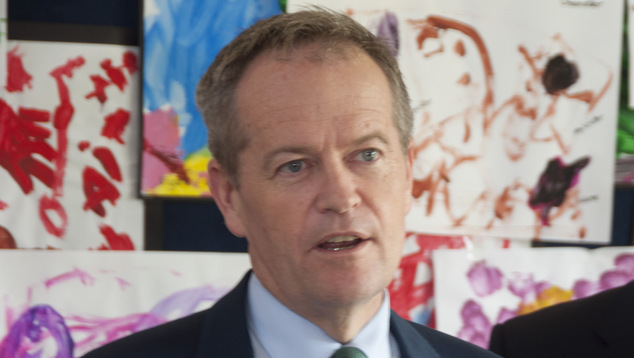
Opposition leader Bill Shorten has repeated Labor’s call for the issue of marriage equality to be decided by parliamentary vote instead of the Coalition’s plebiscite plan.
“Let’s have a conscience vote of our members of Parliament. Why do we need to waste $160 million on a plan devised by the opponents of marriage equality,” Mr Shorten told reporters in Tasmania yesterday.
Government ministers appeared to have different views on the timing of the proposed plebiscite over the weekend with Attorney General George Brandis and Treasurer Scott Morrison giving different time frames for the public vote.
Mr Shorten said the plebiscite plan would lead to an ugly public debate and the issue could be dealt with more efficiently by parliament.
“I don’t think it is healthy to have that big nasty public debate when in fact we can have it in the confines of parliament,” Mr Shorten said.
Mr Shorten said parliament had the ability to make marriage equality a reality next week. next week’s parliamentary sitting is the last opportunity the issue can be addressed before the government’s budget, and the looming possibility of an early election.
The Australian Christian Lobby, the largest organisation lobby to retain the traditional definition of marriage, has described the calls to dump the plebiscite as “white-anting”
The group’s Executive Director Lyle Shelton defended the government and argued that they have always had a consistent timetable.
“The Prime Minister Malcolm Turnbull has repeatedly said the plebiscite will be held after the next federal election,” Mr Shelton said.
“If proponents for change are so confident of overwhelming public support, why do they keep trying to have the peoples’ vote scrapped? Surely they would welcome the opportunity to have such a resounding endorsement of their vision for marriage and family,” Mr Shelton said.
Mr Shelton said the Australian people needed time to consider the consequences of changing the marriage laws.
“By doing whatever it takes to undermine the plebiscite, proponents of change are sending open-minded Australians a message that they would prefer to rush law change rather than allow people the opportunity to carefully examine the consequences.”
Last year WA Premier Colin Barnett voiced his opposition to a plebiscite citing the inevitable public arguments it would produce.
“If this issue were to go to a referendum or a plebiscite, I think it would be very destructive. I think we would see some of the worst sides of Australian society, and I do not believe that should happen.” Premier Barnett told the WA parliament in 2015.
“I think we would see people marching in the street on either side of the debate, and we would see acrimony, personal insults, abuse and the like. I do not want to see this issue go to a referendum or, indeed, a plebiscite.”
OIP Staff






Of course it should be a vote in parliament. That is what we elect these dingalings to do. Get it over and one with give us the chance to be equal.